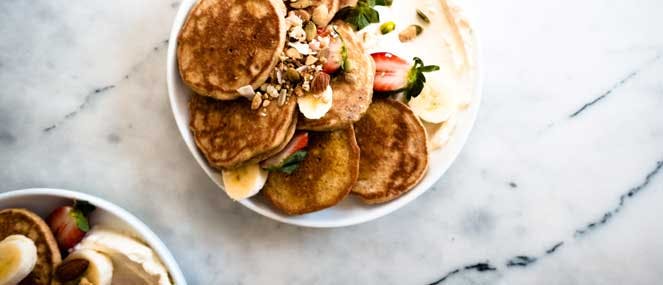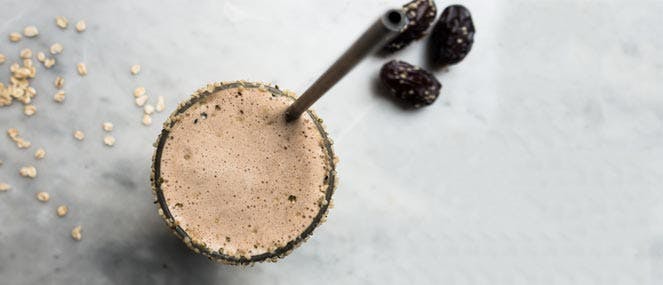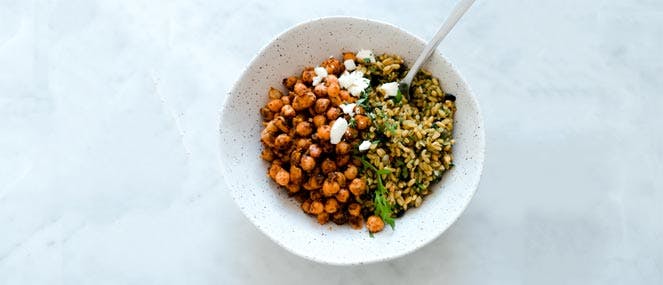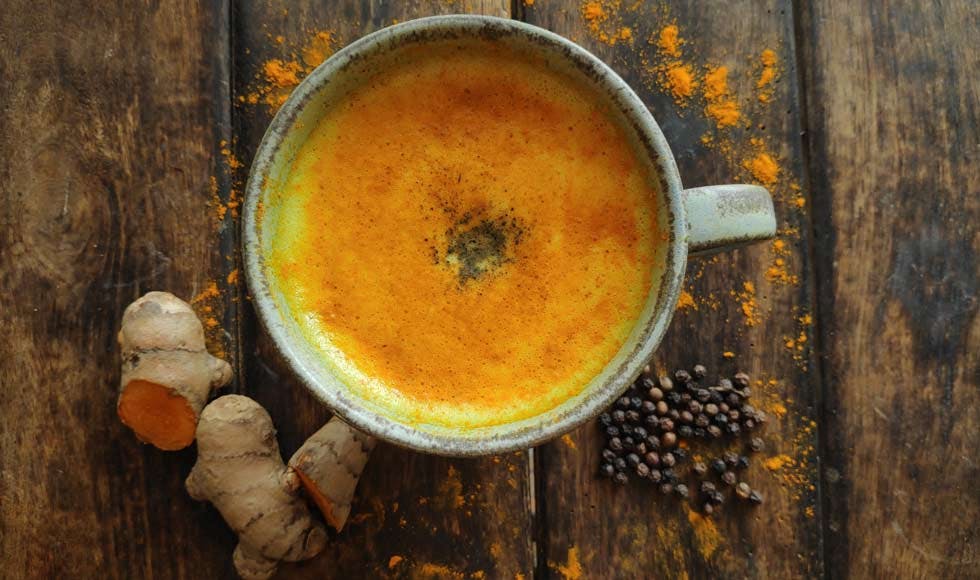
- Health hub/
- Stress relief & sleep support/
- The link between diet and stress
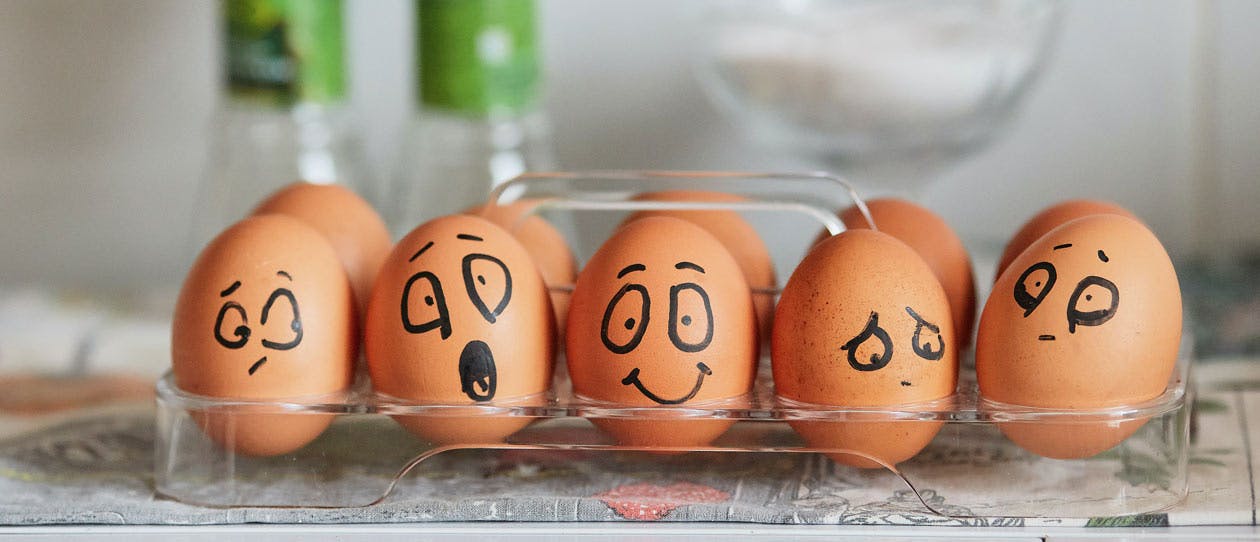

How does stress impact our diet?
There’s a reason stress eating is a common response to stressful times. When we are stressed our adrenal glands release the hormone cortisol which can increase our cravings for high energy foods like simple carbohydrates and high fat food; think chocolate, chips, junk and takeaways, says Professor Isenring.“After the sugar high we often experience a blood sugar crash, which means we reach for more junk and/or caffeine, continuing the cycle,” she says.
As cortisol releases sugar into the blood (ready for that fight or flight) it also increases insulin levels, which drops your blood sugar levels and can make you crave sugary and energy dense ‘junk’ foods, or has you reaching for coffee to ‘perk’ you back up.
While this is usually self-limiting and returns to normal as our stress levels subside, chronic stress means ongoing hits of cortisol and insulin level changes, meaning increased appetite for unhealthy foods.
As with all things health and human related, Professor Isenring notes there does appear to be individual variation; meaning some people tend not to eat while others eat more during periods of stress.
There also appears to be a gender difference – with women more likely to turn to unhealthy food and men more inclined to reach for alcohol or other risky coping strategies such as smoking cigarettes.
Stress hormones, diet and your health
Unfortunately, cortisol is associated with weight gain around the tummy – which Professor Isenring notes is a risk factor for a range of health issues.Abdominal, or visceral, fat is linked to more chronic diseases than subcutaneous fat (the kind you can grasp with your hands); think metabolic disturbances, increased risk of poor heart health and type 2 diabetes.
“It can also impact your cognitive function,” Professor Isenring says.
Alcohol and stress
If you like to decompress with a drink or two – or a binge drinking session (Australian guidelines recommend no more than 10 standard drinks per week and no more than four standard drinks on any one day), you’re placing additional strain on your body.First up, alcohol is high in the sugars we mention above, meaning you’re adding to those affects. Some types of alcohol are higher in sugars than others, and if you’re adding mixers – even juice, you’re often adding to your empty calorie and sugar load.
Alcohol can also impact sleep – it is a diuretic, which means trips to the toilet in the night, interrupting REM sleep. Getting plenty of quality rest is important to help your body deal with stress, and lack of it can make tricky times even harder to navigate.
How can diet help support our health through times of high stress?
A recent study demonstrated that eating healthier options compared with high energy and fat options had the same stress-relieving effects as comfort eating – with the benefit of providing good fuel for our bodies.In times of stress – or really at any given time – Professor Isenring recommends:
- Protein at each meal and snack. This may be lean meat or alternatives such as eggs, dairy, legumes like chickpeas, soy and lentils, nuts and seeds
- Prebiotics, which are fibres found in plant based foods which are the food source for our good gut bacteria. Think oats, artichokes, leeks, onion, garlic, chicory root, green bananas
- Probiotics and fermented foods such as yogurt, kefir, kombucha and pickled vegetables
- Healthy fats, especially the anti-inflammatory omega-3 fatty acids found in salmon, algae, chia and flaxseeds
- B vitamins found in whole grain cereals, leafy greens and legumes
- Keep well hydrated with water – about 30ml per kg of body weight (this also includes water from foods)
- Anti-inflammatory herbs and spices including any fresh green herbs and turmeric and ginger
- And of course, two serves of fruit and five or more serves of vegetables every day
Organisation could be key to staying healthy in times of stress
“When we are particularly stressed out or busy, we may skip or keep irregular meals, then after a period realise we’re starving and then rely on junk food. People may be consuming more takeaways and convenience foods, which if they aren’t carefully selected can also be higher in fat and sugar thus leading to weight gain,” she says.
Even if regular meal prepping is not your personal cup of tea, it’s undeniable that during times of stress, we are often time poor and rely on convenience foods – which vary from super healthy meal boxes or heat and eats, to dodgy microwave meals with little nutritional value – or even skipping meals and eating snack foods from a bag.
While there is no shortage of meal delivery services that can be called upon when stressed to provide a healthy nutritional mix, meal prepping can help you stay healthy. It’s even a useful tool for unexpected high stress situations.
“Have a low sugar muesli bar and fruit in your bag for when the munchies strike and some dark chocolate in the fridge already broken into 2-3 small squares for “emergencies”.
Whether your stress is long or short term, it’s wise to be conscious of the impact it can have on your diet – which in turn can exacerbate the health risks related to stress and unhealthy coping strategies.
Much as we learned back in our school days – plenty of exercise, rest and a healthy diet will help cope with what ails you!
Dr Liz Isenring is a Professor of Nutrition and Dietetics, Advanced Accredited Practising Dietitian and Nutritionist, author and speaker.
